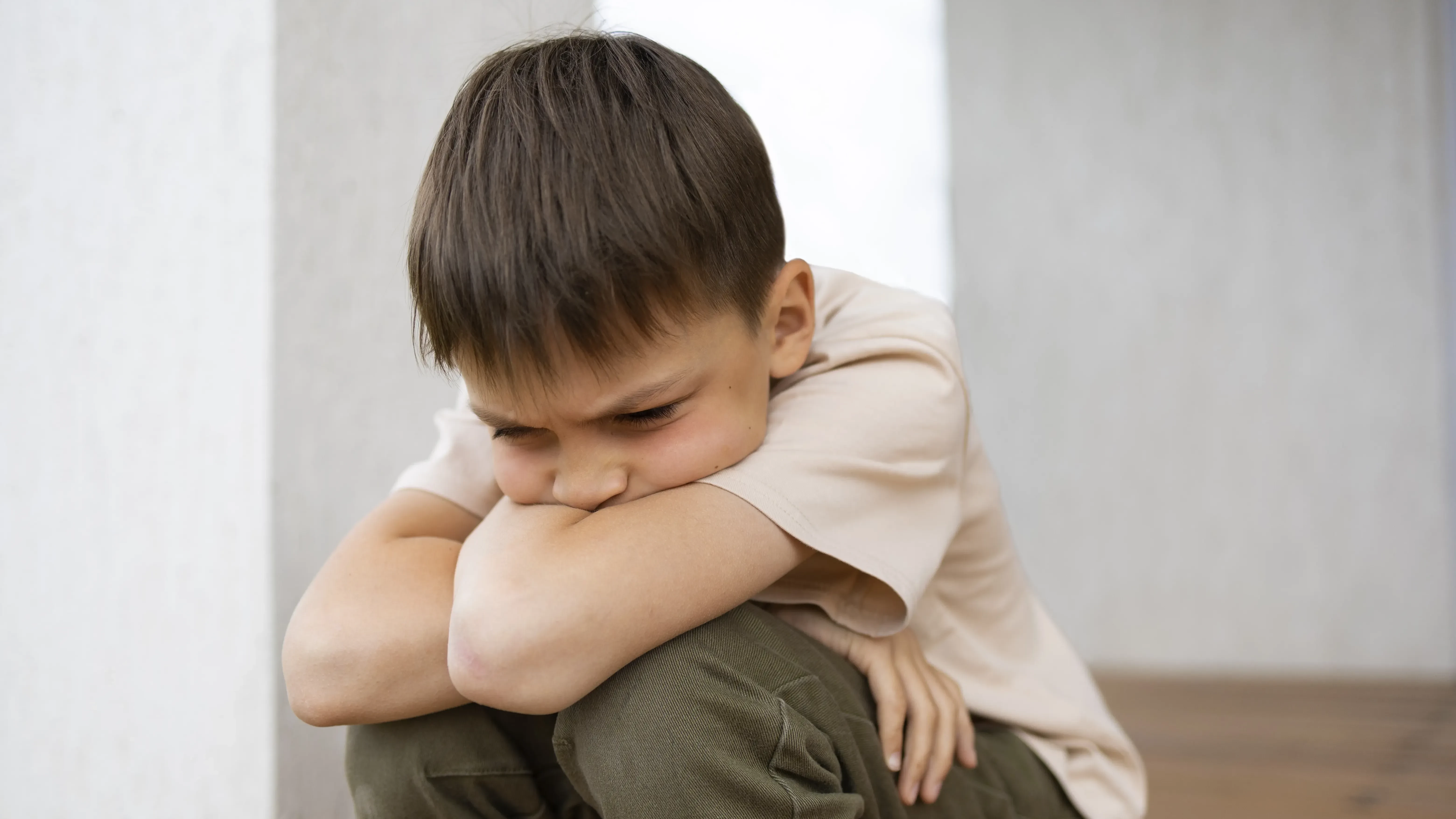
Children's mental health: causes of depression, signs of suicidal thoughts, how to recognize and help
Children's mental health has emerged as a critical concern in recent years, with depression rates among young individuals steadily increasing. According to the World Health Organization, approximately 10-20% of children and adolescents worldwide experience mental disorders, making it a significant public health issue. The relevance of this topic is underscored by the profound impact mental health has on a child's overall development, academic performance, and future well-being.
Why It Is Important to Talk About Children's Mental Health
Addressing children's mental health is paramount because it lays the foundation for healthy adulthood. Early identification and intervention can prevent the escalation of mental health issues, fostering resilience and positive coping mechanisms. Furthermore, discussing mental health openly reduces stigma, encouraging children and their families to seek help without fear of judgment. In an era dominated by digital interactions and changing social dynamics, understanding and supporting children's mental well-being is more crucial than ever.
The Main Manifestations of Psychoemotional Disorders in Children
- What Is "Weakness" in a Psychological Context
In psychological terms, "weakness" does not imply a lack of strength but rather indicates vulnerability or sensitivity to emotional distress. Children who exhibit what may be perceived as weakness might struggle silently with their feelings, making it essential to recognize that these manifestations are not due to inherent fragility but rather a need for support and understanding.
- Closeness as a Warning Sign
Closeness, or withdrawal from social interactions, can be a significant warning sign of underlying mental health issues. When children isolate themselves from friends and family, it may indicate feelings of hopelessness, fear, or an inability to cope with external pressures. This behavior warrants attention, as it often precedes more severe emotional or psychological challenges.
- Symptoms of Childhood Depression
Childhood depression manifests through various symptoms, including:
- Lack of Interest: A noticeable decline in enthusiasm for activities previously enjoyed.
- Apathy: Indifference towards academic, social, or familial responsibilities.
- Aggression: Increased irritability or hostile behavior towards others.
- Changes in Sleep Patterns: Insomnia or excessive sleeping.
- Appetite Fluctuations: Significant weight loss or gain due to altered eating habits.
- Fatigue: Persistent tiredness not alleviated by rest.
- Difficulty Concentrating: Struggles with focus and academic performance.
- How Suicidal Thoughts and Attempts Manifest Themselves in Children
Suicidal ideation in children can be subtle and may include expressions of hopelessness, verbal statements about wanting to die, or seeking access to means of self-harm. Behavioral changes such as giving away prized possessions, sudden loss of interest in life, or engaging in risky behaviors can also signal suicidal tendencies. It is imperative to take these signs seriously and seek immediate professional help.
Causes of Such Conditions
- Biological Factors
Biological factors play a significant role in the development of mental health conditions. Genetics can predispose children to depression and suicidal tendencies, making them more susceptible if there is a family history of such disorders. Additionally, hormonal changes, especially during puberty, can influence mood regulation and emotional stability, contributing to the onset of depression.
- Social Factors
Social determinants, including the lack of a supportive environment, bullying, and family problems, are critical contributors to children's mental health issues. Bullying, whether in-person or through social media, can lead to feelings of inadequacy and isolation. Family instability, such as divorce or domestic conflict, creates a stressful environment that burdens a child's emotional well-being. The pressure to achieve popularity and navigate youth culture further exacerbates these social stresses.
- Psychological Factors
Psychological factors such as trauma and low self-esteem significantly impact a child's mental health. Experiencing traumatic events, whether subtle or severe, can lead to long-lasting emotional scars. Low self-esteem undermines a child's confidence and ability to form healthy social skills, making them more vulnerable to depression and suicidal thoughts.
What Adults Can Do
How Not to Miss the First Signals
Adults must stay vigilant and observant of any changes in a child's behavior or mood. Regular communication and fostering an environment where children feel safe to express their feelings can help in early detection. Monitoring social media interactions and maintaining appropriate parental control on phones can also prevent exposure to harmful content that may trigger mental health issues.
What to Say/Not to Say to a Child
When addressing a child's mental health, it is essential to approach the conversation with empathy and support. Avoid dismissive language or making assumptions about their feelings. Instead, use open-ended questions and affirmations, such as, "I’m here for you," or "Can you tell me how you're feeling?" Encouraging creativity and fostering open dialogue can help children articulate their emotions more effectively.
When to Contact a Specialist
If a child exhibits persistent signs of depression or suicidal thoughts, it is crucial to seek professional help. Consulting a child psychologist or psychiatrist can provide specialized support and intervention strategies tailored to the child's needs. Early professional intervention can make a significant difference in the child's recovery and long-term mental health.
How to Help a Child: Tips
- Advice for Parents
Parents play a pivotal role in supporting their child's mental health. Effective communication is key; regularly engage in conversations about their feelings and experiences. Show unconditional support and understanding, ensuring that the child feels valued and heard. Observing the child's behavior and being attentive to any changes can help in identifying issues early. Encouraging creativity through art, music, or other activities can provide healthy outlets for emotional expression. Additionally, implementing parental control on phones and promoting online safety ensures that children are protected from potentially harmful digital interactions.
- The Role of School and Teachers
Schools and teachers are integral to a child's support system. They can identify behavioral changes and academic struggles that may indicate mental health issues. Implementing child protection policies and fostering a supportive school environment contribute to overall child development. Educators can also promote social skills and resilience through structured activities and peer support programs, helping children navigate the complexities of youth culture and popularity.
- Emphasizing the Use of "Parent Control Kroha" App
In the digital age, tools like the "Parent Control Kroha" app are invaluable for enhancing child protection and online safety. This app allows parents to monitor and regulate their child's online activities, ensuring they are shielded from harmful content on social media. By providing features such as screen time management and content filtering, "Parent Control Kroha" supports parents in maintaining a balanced digital environment. This proactive approach not only safeguards the child's mental health but also fosters responsible use of technology, contributing to healthier child development.
Conclusion
Summary: Why You Shouldn't Ignore Warning Signs
Ignoring the warning signs of mental health issues in children can lead to severe and lasting consequences. Early recognition and intervention are essential in preventing the escalation of depression and suicidal tendencies. By staying informed and vigilant, parents, educators, and caregivers can create a supportive environment that promotes mental well-being and resilience in children.
A Call to Pay Attention to Children's Mental Health
Children's mental health deserves our unwavering attention and proactive efforts. By prioritizing mental well-being, fostering open communication, and utilizing effective tools like "Parent Control Kroha," we can ensure that our children grow into healthy, confident, and emotionally stable adults. Let us commit to recognizing the signs, understanding the causes, and providing the necessary support to safeguard our children's futures.
Recent articles
Dry Eye Syndrome: How Kroha Can Protect Your Child's Vision
In today’s digital age, children are increasingly exposed to screens from an early age. This surge in screen time has brought to light several health concerns, one of the most pressing being Dry Eye Syndrome (DES). According to recent studies, the prevalence of dry eye symptoms in children has risen sharply, paralleling the increase in digital device usage. As children spend more hours on gadgets for education and entertainment, understanding and mitigating the risks associated with DES has become crucial for parents aiming to protect their child’s vision.
How to Make Spotify Safe for Your Child
In today’s digital era, online audio safety matters more than ever—especially for kids who are increasingly using platforms like Spotify to listen to their favorite tunes, stories, or educational podcasts. As a leading streaming service, Spotify offers a variety of content that appeals to different age groups. However, with the vast variety of music, podcasts, and other audio content available, parents need to be proactive. This article serves as a guide offering tips for parents on how to make Spotify safe for your child. It presents concrete steps and clarifies possible risks such as inappropriate explicit lyrics, uncontrolled access to unsuitable podcasts, and content that might not be age-appropriate. The urgency of digital safety is underscored by recent studies on children’s online media consumption published by reputable media sources and research bodies, which indicate that early exposure to unfiltered content can affect a child’s digital literacy and overall learning experiences.

